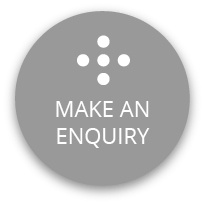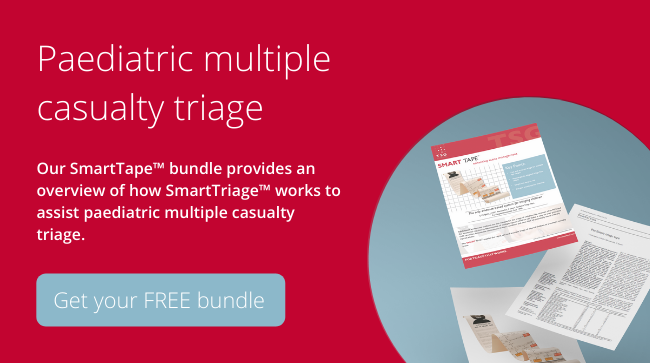


18/09/2023
TSG Talk- A long wait
In a recent instalment of our podcast, Senior Partner, Colin Smart, engaged in a discussion with 77-year-old Ted Liddle. Ted, while preparing for a charity cycling event, experienced a syncope episode that resulted in a significant fall and a staggering total of twelve broken ribs. During their conversation, Ted shared the details of how this incident unfolded and the distressing experience he endured while waiting for an ambulance to arrive.
Leading up to the fall
Ted proceeded to detail how the incident he suffered last year began as a result of him volunteering to trim a hedge.
“The incident took place 5 miles away from my home in the town of Hexham, which is my nearest metropolis. I advise a cycling charity that had just set up in Hexham, and they were newly starting to operate from a premises that had a high leylandii hedge surrounding it. And they asked me, do I know anybody who could reduce the height of that hedge? I said. ‘Well, look, I'll offer to do that because I'm qualified to use a chainsaw.’ So I went down with my son, my adult son, who I knew I was gonna have to go up a ladder. Angus, my son, stands guard at the bottom of the ladder, keeping it steady. And what happened was I'd been cutting for about an hour and a quarter. My chainsaw had run out of fuel.”
He proceeded to further elaborate on the sequence of events that preceded his fall.
“I came down and sat down, had a cup of tea, and had a rest and it was time to resume work. So I changed the chainsaw. I didn't top the other one up, I changed it to a different chainsaw because I was a bit concerned that the other one had got slightly blunted and I ascended the ladder to a height of 2.4 metres... but before I could clip into something to keep me safe … I experienced a vascular syncope.”
“My heart missed a beat. Now nothing like that's ever happened to me before, except the very first occasion when I met my wife… But seriously, never for real have I had anything to affect my heart. Well, what immediately happened was I hadn't got clipped in. It was just a beat because when I regained consciousness halfway between where I'd been standing and where I was on the ground, I instantly became aware of the situation. Three things occurred to me at the fastest of speed, first of all, I recognised I was falling. Secondly, I knew…I was going to meet the ground imminently. And the third thing I knew is that it was going to hurt. So I was actually horizontal and relaxed when I landed on the right side of my body. And at that exact moment, the right half of my rib cage acted as a crumple zone and later on, I learned it was 12 ribs that had been broken.”
Waiting for the ambulance
He continued to explain that he was experiencing pain, immobilised but calm, drawing from his past experiences as a seasoned mountaineer.
“And of course, there was a lot of pain. Now I'm not a person that panics, and the first thing that I did was move my fingers and both my hands. And then I moved my toes. I couldn't move my legs, but I wasn't worried about that at the time because I knew that if my toes were operating, I could send a message down to my lower limbs.”
“Now I was in intense pain at that time… perhaps it's because I've been a mountaineer, but I didn't panic, and my son instantly came to me. he was unable to stop that fall because I fell at the side. And I told him that I had some pretty bad injuries, but that I felt that I wanted to put his mind at rest, and I said, look, I really don't think I've fractured my spine. I haven't broken my neck. I'm not going to move my head. Go inside, get the guys out, tell them that I've fallen and then we'll take it from there. So he went, they came straight out instantly, seriously concerned. But I couldn't really look at their faces at all, but I could hear their voices.”
He stressed the importance of people talking to him, so he remains conscious.
“I said obviously don't move me, keep me warm, get the ambulance here as fast as you can please, because I was in pain. But neither did I panic, and neither was I frightened. I just knew that it was serious and that we needed expert help to get me lifted up and taken to hospital. They kept me warm, they talked to me. That was really important. I had stressed to them that I wasn't in a terrible panic, but I was in a lot of pain, so they talked to me to keep me conscious because I was wanting to drift out. To drift away, to become unconscious. And I tried to keep awake. I remember I lay there for two and a half hours.”
What advice would you give our listeners?
Ted then outlined three key points that should be prioritised by individuals in incidents like this.
“Now touch verbal assurances are so, so important. Not being lied to but being given positive words, sharing positive thoughts. Another aspect I think is updates. I think it's really important to be updated. The update might be that we've been on the phone again. There's a big delay there but they know that you need help and we have their assurance that they'll be here as quickly as possible. Now that to a certain extent is a little bit of flannel. But you know, to hear that it is priceless. So updates are important. I think the last of the points that I would share is the importance of asking the patient questions, now that I believe is important because it stimulates the patient to think, and be forced into thinking.”
Find out more
Click here to listen to the full TSG Talk episode with Ted, and to find out more about our life-saving solutions please call TSG Associates on 01422 557841 or email the team at info@tsgassociates.co.uk.










